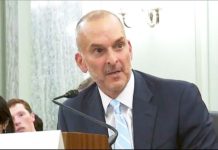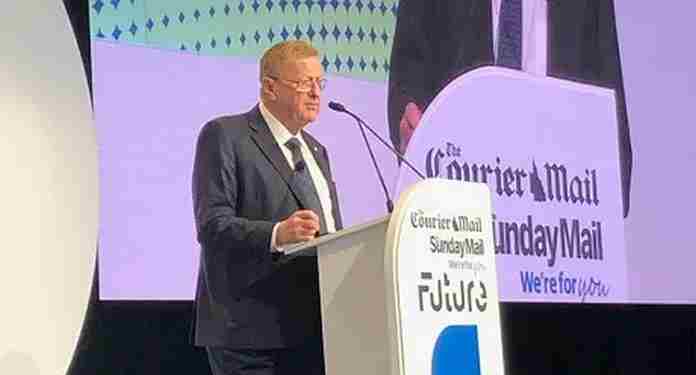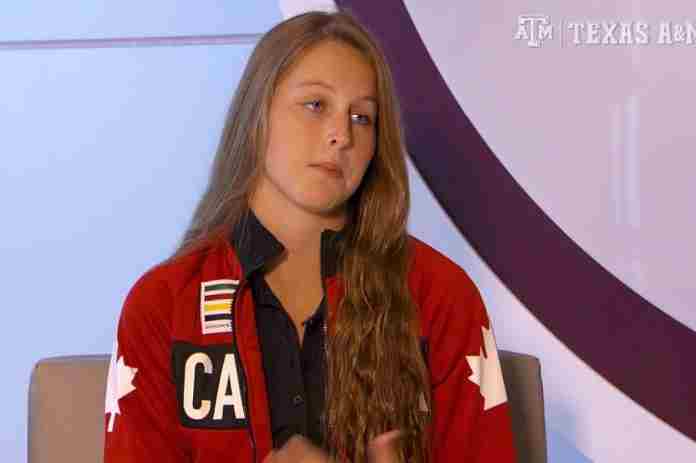When Australia’s John Coates speaks about the Olympic Games, it’s worth the time to listen. A senior vice-president of the Sydney Olympic Organizing Committee for the 2000 Games, he was elected to membership in the International Olympic Committee in 2001, was a vice president from 20013-17 and has been a key advisor to current president Thomas Bach (GER).
In an address to a Thursday luncheon audience in Brisbane concerning tourism, Coates gripped the audience with these comments:
“The election by the IOC of the host for the 2032 Olympic and Paralympic Games would normally be taken ‘seven years before’ that is, in 2025; however, if proposed changes to the Games host election process are approved in 12 days’ time and there is a candidate ready to put its hand up, this election could be as early as the IOC Session in Tokyo next year before the opening of the Games on 24 July.”
and
“The 2032 Olympic Games is there to win. I hope you will give it serious consideration.”
Coming from Coates, 69, this is a signal that he believes – as an ultimate insider – the Games of the XXXV Olympiad can be acquired quickly, inexpensively and before anyone else can get organized, as soon as next year. And his speech has already been making the rounds of Olympic news site and those in other cities and countries fantasizing about the 2032 Games.
Coates made a number of important points in his remarks worth further scrutiny:
● Costs
Coates said this; read it slowly (and the math does add up):
“The Tokyo 2020 Games has an operational budget of USD 5.6 billion and will pay for themselves, with USD 1.6 billion contributed by the IOC, USD 800 million revenue from ticketing, USD 100 million from licensing and USD 3.1 billion from national sponsors, to date.”
and
“We’re [the IOC] reducing the costs for cities to bid: the average budget for the 2026 Olympic Winter candidates is over 75% lower than for the 2018 and 2022 candidates, and when I shortly explain the proposed future election process, you will appreciate that the budget for bidding for 2032 could be minimal.”
● Modifications in the bidding process
Coates went on to explain that the IOC’s new working group – of which he is the chair, which was not disclosed in the speech – has proposed for approval later this month a plan for a “ permanent, ongoing dialogue to explore and create interest among cities/regions/countries and NOCs for Olympic Games” and that the IOC should be able to “react to various developments and opportunities” in naming future hosts, without any set time frame.
● Revenue assurance through 2032
He also was clear why it is possible to think of a 2032 award now instead of the future: money. This is important:
“The U.S. Broadcast Rightsholder, NBC has contracted to pay, for the territory of America alone, around USD 2.3 billion per Olympic quadrennium including the current, through to 2032.
“This is by far the largest of all Olympic broadcast rights payments and constitutes around 40% of total Olympic revenue. It is because of this revenue and the long-term contracts the IOC has with its worldwide Olympic sponsor partners, that President Bach was able to inform Councillor Adrian Shrinner, as Chair of the Council of Mayors of SEQ, and Premier Annastacia Palaszczuk when he met with them here in Queensland early last month, that any candidature for 2032 can be assured of a USD 1.8 billion contribution from the IOC towards its operational budget.”
For anyone who thinks the IOC is somehow asleep, here is the proof to the contrary. NBC’s contract is the bedrock on which the Olympic Movement stands today. He did not mention the comparatively tiny agreements for broadcasters in Brazil and Korea; it’s the U.S. market that powers the Games and all of the surrounding programs.
In truth, the IOC should be contributing more than $1.8 billion for 2032, as that’s the amount it is contributing to Los Angeles for 2028.
As Coates noted, there has already been significant discussion in Australia and especially in South East Queensland (SEQ) about a future Olympic Games, propelled by the success of the 2018 Commonwealth Games in Gold Coast. The SEQ area includes Brisbane – site of the luncheon – which hosted an excellent Commonwealth Games in 1982 and the Goodwill Games in 2001.
He also brought his own view – again, from someone who knows – that the area can meet the IOC’s base requirements to be a successful candidate:
“On the basis that SEQ is the only significant region, and Queensland the only State in Australia with all three of the requisite climate, population and sporting infrastructure to host a summer Games in July/August, the AOC gave its in-principle support for a Games in SEQ and for a feasibility study into hosting them.”
The July-August timing is key because that’s when NBC and the large European broadcasters want the Games to take place, away from the crowded national sports schedules of the fall and winter months in those countries.
To his credit, Coates was clear that his view that a 2032 Games in South East Queensland would be financially feasible extends to the “operational” budget of the Games, which does NOT include the construction of any new venues or supporting facilities (such as Olympic Villages) or the required governmental support for security and visa control at a minimum. That’s a different issue and not a small one for the country or region to consider.
Coates’s speech is being read and re-read with great interest in many countries which have talked publicly about a 2032 bid: China, Germany, India, Indonesia and a joint North-South Korea bid. The rush will now start in those countries to be ready with their own plans on the assumption that Australia will move ahead.
Will the IOC actually award the 2032 Games in 2020? It’s not likely today, but the idea will be widely discussed when the membership meets at the IOC Session from 24-26 June in Lausanne (SUI).
And Coates and Bach will asked about it now, repeatedly. The bidding and organizing process of an Olympic Games is often described as a marathon; Coates has essentially grabbed the starter’s pistol for 2032. What is yet to be determined is whether he actually started the race, or if he was only testing the timing system.
Rich Perelman
Editor


























